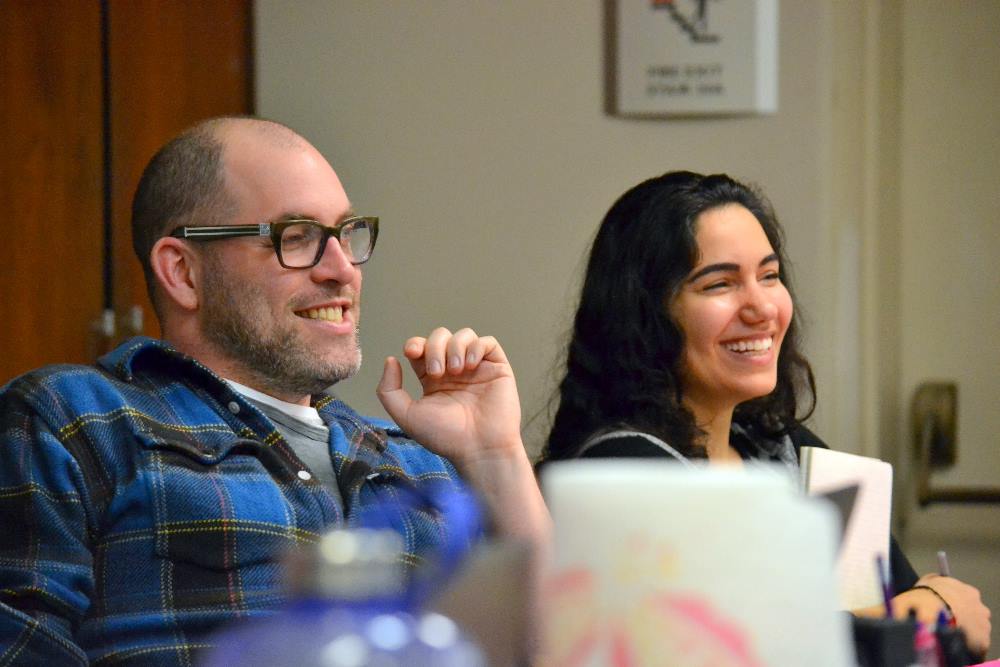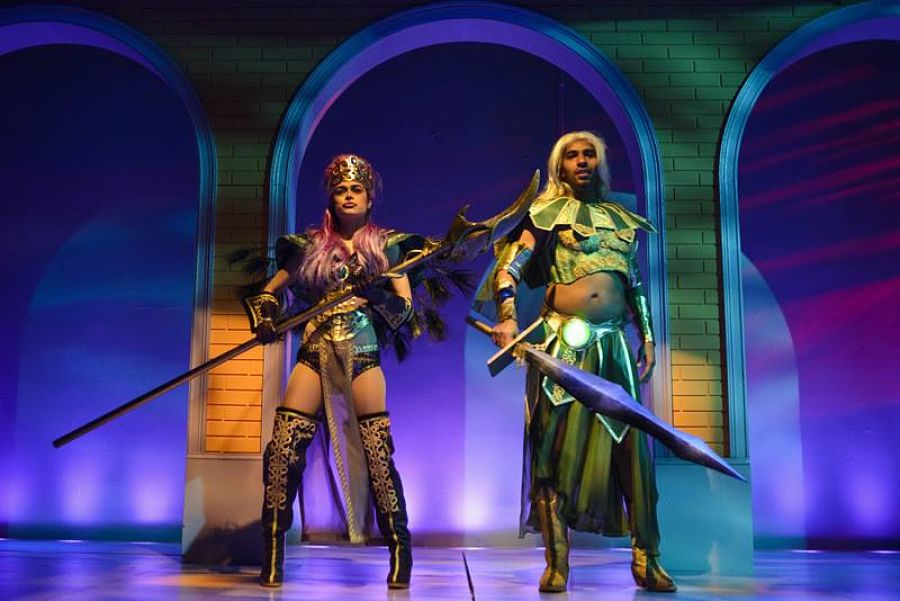ATLANTA: What would you do if money was not an issue? When an anonymous donor posed this question to Alliance Theatre’s artistic director, Susan Booth, she knew exactly what she wanted to do. She wanted to create a new-play development program to help playwrights bridge the gap between being a student and becoming a professional, particularly those writers coming out of the nation’s top MFA programs. The result was the Kendeda National Graduate Playwriting Competition.
“I’m interested in writers who I can’t compare to writers I already know,” said Booth. “I’m looking for writers that push the form and embrace the form—people who expand the definition of theatricality.”
In other words, Booth wanted to get her hands on the best new plays before anyone else, and the Kendeda Fund, a private family foundation based in Atlanta that underwrites the prize, offered her that opportunity. Now, 12 years later, the Kendeda Competition can boast of having helped launch the careers of some of today’s hottest playwrights: Tarell Alvin McCraney, Mike Lew, Meg Miroshnik, Marcus Gardley, Madhuri Shekar.
About 60–70 full-length plays, written by playwrights in their final year of an MFA program, are submitted to the competition each year. The company starts accepting applications in late July/early August, and Celise Kalke, the theatre’s director of new projects, leads a committee which reads all of the plays over the course of a month. The plays are then rated by the staff as either a 1, meaning the play is not ready for production, or on a scale of 7 to 10, which ranks the quality from good to excellent.
“We are always looking for content, talent, and producibility,” said Kalke. “There are no guidelines about set pieces, cast size, whether they require multidisciplinary work, etc.”
The five highest-ranking plays are then sent to Booth and three other readers—usually playwrights, artistic directors, producers, or funders—who then select the winner and finalists.*
The winner and finalists are notified by late winter, and all finalists receive a reading at the Alliance and at a theatre in New York City (past venues include Playwrights Horizons and the Lark). The winner is offered a publishing deal with Samuel French and receives a full production at the Alliance in the company’s 200-seat Hertz Theatre.
For many of the playwrights, the Kendeda prize is the first time they receive professional developmental support for their work, and, in the case of the winners, their first professional production at a major resident theatre. Previous Kendeda winners’ plays have gone on to be produced nationwide, the most notable being McCraney’s In the Red and Brown Water.

Eleanor Burgess, the 2016 winner, describes finding out that she won the Kendeda prize as the best phone call you could possibly get. “When you’re an artist, you dream of the opportunity to do your work, and almost no theatre will produce a play by an emerging writer, so knowing that I was going to be able to do this job was extraordinary,” she said.
Burgess’s play Start Down is running through March 6 at the Alliance. The 31-year-old graduated from New York University last spring and used her previous career as a high school history teacher as inspiration for the script. “The play asks questions about the state of education and where computers get into our lives,” the Boston native said. “I had an amazing teacher at NYU who said you should write about things that seduce you and terrify you, and I wrote about technology, because it’s both for me.”
Start Down is about a computer programmer in San Francisco whose girlfriend teaches at an inner-city school, and the programmer develops software that aids in the classroom. The software has the ability to personalize lesson plans for each student, but then the students start interfacing with the software instead of the teacher.
“My husband runs a start-up, and I was in Silicon Valley staying with him during the early days of the tech boom,” Burgess explained. “I was fascinated by this environment where people were so optimistic and believe that technology could change the world.”
Said Booth, “It’s a subject matter that is usually relegated to sci-fi utopia films, but Eleanor thoughtfully gets into the ethical implications of technology that could render human relationships in a sector obsolete.”
The opening of Start Down kicks off a series of celebrations around the prize and its finalists; so-called Kendeda Week (it actually runs only Feb. 16–18) features readings from the four 2016 finalists. Like Burgess’s, their plays are all similar conversation starters: Nina Braddock’s Wishbone is about eating disorders, All Roads Home by Jen Silverman follows three generations of women, Hilary Bettis’s The Ghost of Lote Bravo is about a mother searching for her child at the U.S./Mexico border, and The Confession by Will Arbery features a gay priest at a Catholic boys’ school. The readings are directed by local artistic directors, who often go on to stage full productions of the shows at their theatres in future seasons.

“We’re a theatre in a town that does not have an MFA program, but our readings are well-attended,” Kalke said. “People in town come to our readings to see who’s coming out of these rigorous MFA programs.”
In addition to the readings, the Alliance also stays in touch with the finalists and winners by having them write shows for the teen ensemble and keeping their plays on the short list for the Hertz season. Shekar, who won the 2014 Kendeda competition for her play In Love & Warcraft (which has been produced six times since, including once in Edinburgh), wrote last season’s teen ensemble play, Antigone, presented by the girls of St. Catherine’s. She also penned the adaptation of the children’s book A Bucket of Blessings for the Alliance’s Theatre for the Very Young series, which closed on Valentine’s Day after a sold-out run.
“Celise and Susan have welcomed me into the Alliance family in the most amazing way,” Shekar said. “I call the Alliance my own personal Disneyland, because the people there have been just that wonderful to me.”
Kelundra Smith is an arts journalist based in Atlanta.
*An earlier version of the story misrepresented the ranking and selection process for the competition. We’ve expanded and clarified it.


